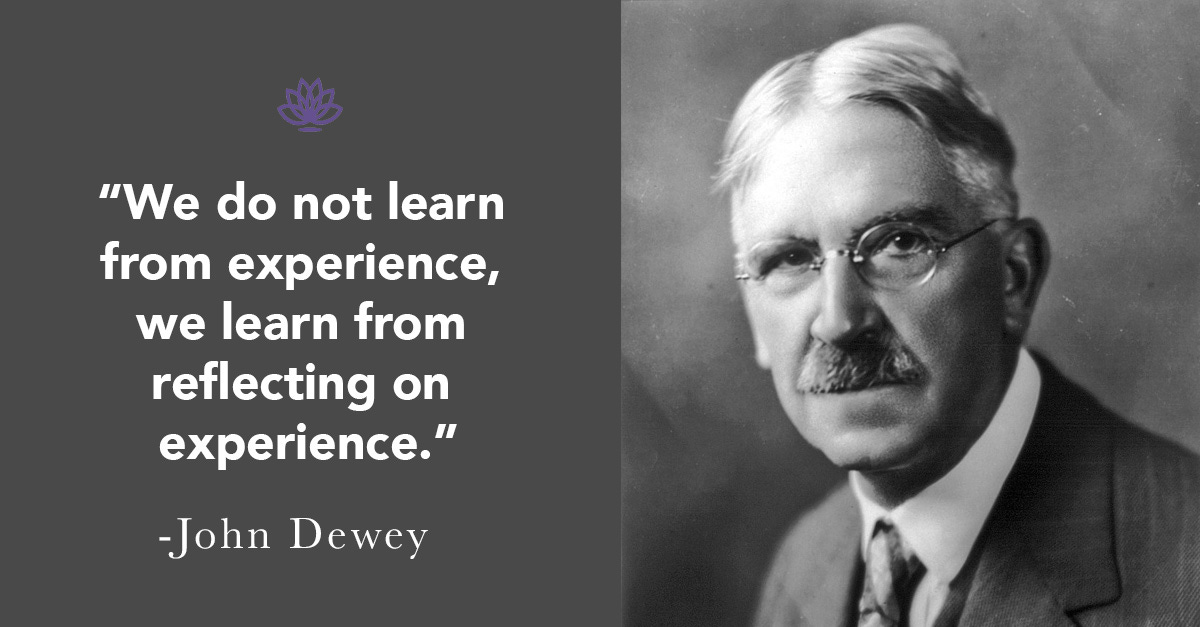Reflective Learning
Transmissionism is the implicit assumption that knowledge may be gained through the passive consumption of words from a teacher, lecturer, book, or any other such communicative means. That pretty much describes the formal structure of my primary and secondary education.
The professor has the requisite information and “transmits” it into the minds of students. Subsequent tests reveal the extent to which the material was effectively “absorbed”.
But of course testing does no such thing. It merely exposes the pitfalls of rote learning and transmission-based expatiation.
Extensive research demonstrates the value of interleaving problem-solving sessions in the midst of presentation, allowing students to work with the matter. New concepts must be contemplated, debated, correlated, and analogized - all before any real synthesis can take place.
This was one of the many great insights made by the 19th-20th century philosopher and educational-reformer John Dewey, who steadfastly emphasized the importance of observation and critical thinking. “We do not learn from experience, we learn from reflecting on experience.”
As an aside, this is not the same Dewey of library fame and controversy (Melville), who coincidentally lived at the same time as John - approximately 200 miles away. Nor do I believe they knew one another.
Back to John Dewey’s keen acumen regarding reflective learning.
Actively engaging within the full context of the “informational environment” and subsequently reflecting on experience is the path to true knowledge. Through this process, we gain a deeper understanding of not just subject ontology but also ourselves.
Which happens to be a vital component of spiritual growth.
We mustn’t merely accept what we read or what we’re told. At best this leads to the appearance of knowledge. At worst, discipleship.
To deeply internalize and reap the rewards of understanding, intense inquiry and essential analysis are required. An organic cycle of scrutiny, exploration, connection, and reflection precipitates confident comprehension.
For practicing a thought system like A Course in Miracles and experiencing the deep peace toward which it leads, inner reflection is required. Specifically looking at all our perceptions and the purpose they serve. As the philosophy encourages:
To learn this course requires willingness to question every value that you hold. Not one can be kept hidden and obscure but it will jeopardize your learning. (T-24.in.2)
Such an educational approach leads to an uncovering of false beliefs and limiting illusions which hinder development. By immersing ourselves in these methods, we begin to awaken to the truth of our being and experience immense joy and freedom.
Dewey would categorically concur.
Join me in Thursday’s class where we’ll discuss the Course learning framework for liberation. I look forward to seeing you then.


